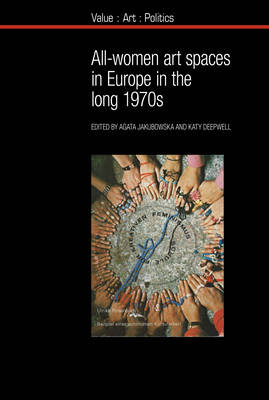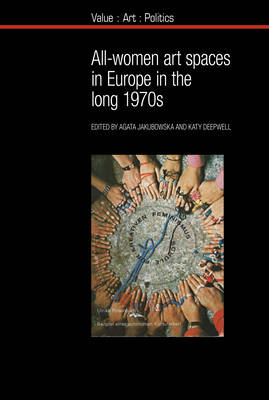
- Retrait gratuit dans votre magasin Club
- 7.000.000 titres dans notre catalogue
- Payer en toute sécurité
- Toujours un magasin près de chez vous
- Retrait gratuit dans votre magasin Club
- 7.000.0000 titres dans notre catalogue
- Payer en toute sécurité
- Toujours un magasin près de chez vous
All-Women Art Spaces in Europe in the Long 1970s
Description
The texts gathered in this volume embrace women artists-only exhibitions, festivals, collective art projects, groups and associations, organised in the long 1970s in Europe (1968-1984). These all-women art initiatives are closely related to developments within the political and politicized women's movement in Europe and America but what emerges is the varied and plural manner of their engagements with feminism(s) alongside their creation of 'heterotopias' in relation to specific sites/ politics/ collaborative art practices. This book presents examples from Italy, Spain, UK, Portugal, Austria, Poland, Denmark, Germany (East and West), The Netherlands, France and Sweden. While each chapter is largely devoted to one country, the authors point to how the local and specific political situation in which these initiatives emerged is linked to global tendencies as well as inter-European exchanges. Each chapter of this book thus assesses the impact of travelling views of feminism, by considering connections made between women artists (often when travelling abroad) or their knowledge of art practices from abroad. Distinct and highly varied attitudes towards political activism (from strong engagement to a clearly pronounced distance and even hostility) are shown in each essay and, what is more, they are shown as based on radically different premises about feminism, politics and art.
Contributors: Fabienne Dumont, Annika Öhrner, Katy Deepwell, Elke Krasny, Nina Hoechtl, Julia Wieger, Monika Kaiser, Kathleen Wentrack, Katia Almerini, Márcia Oliveira, Agata Jakubowska, and Susanne Altmann.
Spécifications
Parties prenantes
- Editeur:
Contenu
- Nombre de pages :
- 296
- Langue:
- Anglais
- Collection :
- Tome:
- n° 15
Caractéristiques
- EAN:
- 9781800857124
- Date de parution :
- 01-08-21
- Format:
- Livre broché
- Format numérique:
- Trade paperback (VS)
- Dimensions :
- 156 mm x 234 mm
- Poids :
- 417 g

Les avis
Nous publions uniquement les avis qui respectent les conditions requises. Consultez nos conditions pour les avis.





